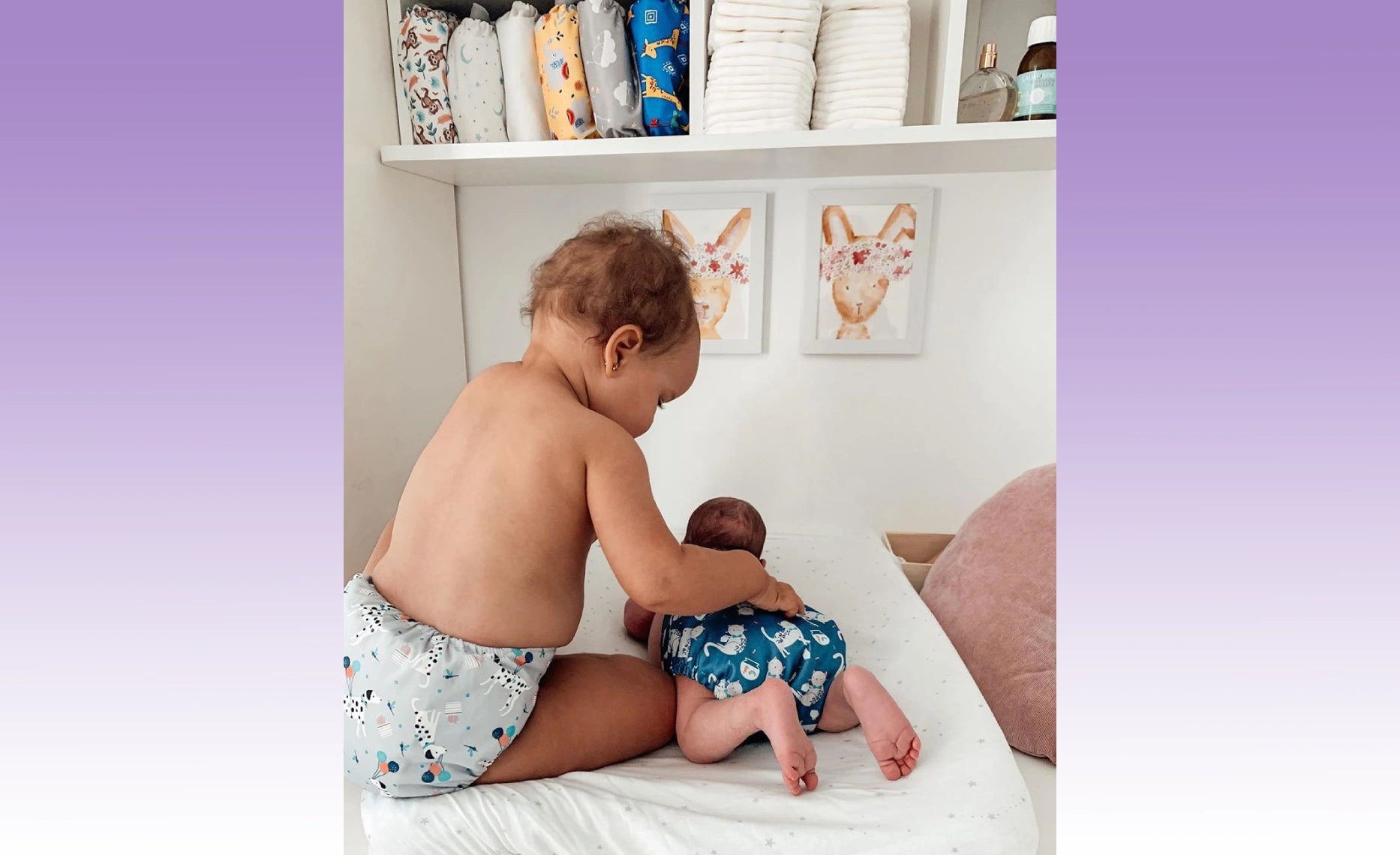Week 16 of Pregnancy | How Big is Your Baby at 16 Weeks?
Share Options
- Bambino Mio
- 13 / 06 / 2023

Inside this Article:
- Your baby is now the size of an avocado!
- Your baby’s developing a sense of taste already!
- Baby’s pulling faces already!
- Your 16-week midwife appt
- How you’re feeling at 16 weeks pregnant
- Your baby bump
- Staying healthy at 16 weeks
- What you need to think about at 16 weeks of pregnancy
- Pregnancy by Week, What to Expect
Pregnancy is a time of huge change for you, your body and your life. Our guide will help you through this amazing time, letting you know what to expect at each stage and, most excitingly, what your baby is up to each week.
Your baby is now the size of an avocado!
At 16 weeks, your baby is the size of an avocado, which is roughly 12.5cm (5 inches). This is the crown-rump length, with the crown-heel length being around 18cm (7 inches).
You baby also weighs around 145g (5 oz) and their heart is beating between 120 and 150 times per minute (1), pumping around 24 litres of blood around their little body each day.
Your baby’s developing a sense of taste already!
Your baby’s taste buds and taste pores are fully developed and working this week and they can taste your amniotic fluid, which they’re now swallowing (2). If you want your child to have a sophisticated palate, eat a wide range of foods as their flavours will work their way into your waters!
The 16th week of pregnancy also sees your baby growing hair on their eyebrows, chin and upper lip and their eyes start to make their first movements.
While your baby’s head is pulling up into a straight line with their body, their sense of hearing is still in development. They may be able to hear a small range of sounds this week and they’re also growing more muscle mass and bones.
Baby’s pulling faces already!
In some ways, your 16-week foetus is already acting like a teenager as they’re starting to pull faces! Their facial muscles are fully formed now (3), so grimaces, smiles and frowns start to flash across their face, although these facial expressions are purely reflexive and nothing to do with emotions (or screen time…).
Your 16-week midwife appt
You’ll have your second routine midwife appointment (4) around this time, with your midwife checking your blood pressure and testing a urine sample for signs of problems like diabetes or pre-eclampsia.
You might also discuss your upcoming 20-week ultrasound scan (5) and any worries you have.
How you’re feeling at 16 weeks pregnant
You’re comfortably into your second trimester now and you’ll be feeling a bit more energetic. However, you might still have a few niggles, with heartburn, constipation and back pain being some of the most common symptoms around this time.
By 16 weeks of pregnancy, you’ll almost certainly have a baby belly and, if your placenta is at the back of your uterus, you just might be able to detect a few movements.
Your baby bump
Your long-awaited bump is here, but if it’s not quite as visible as you were hoping for, just give it a few more weeks!
It’s a good time to start moisturising your belly to help it cope with the stretching and to keep your skin supple. Slicking on oil or lotion is also a great way to bond with your baby.
From now on, your growing bump might make it harder to get comfortable in bed, so 16 weeks is a good time to invest in a pregnancy pillow as these can help to support your belly, hips and spine.
Staying healthy at 16 weeks
You might not be taking your prenatal vitamin supplements any more but it’s still a good idea to keep an eye on your iron levels and your midwife might recommend a vitamin D supplement.
Make sure you’re eating at least five portions of fruit and veg every day and try to include one or two portions of oily fish each week, as well as having the occasional treat.
Your pregnancy hormones can affect your gums (6), so book yourself into your dentist for a check up and for any work you might need. Pregnant women usually qualify for NHS treatment, so it’s a good time to do this.
What you need to think about at 16 weeks of pregnancy
You’re not far from the halfway point of your pregnancy and while your colleagues and employer almost certainly know you’re pregnant, it’s time to think about formally telling your work (7) you’re expecting a baby so you can plan your maternity leave.
Legally you have to tell them 15 weeks before your baby’s due, but it can be reassuring to know you’re setting everything in place for your maternity leave.
If you haven’t already started them, find out how to do pelvic floor exercises (8) and get into a routine! Many women do their Kegels when they’re brushing their teeth or doing the washing up. No one can tell you’re doing them, so squeeze away - you’ll thank us later!
Citations and References
(1) Radiopaedia. ‘Fetal Heart Rate in the First and Second Trimester.’ 2023. Web. radiopaedia.org/articles/fetal-heart-rate-in-the-first-and-second-trimester
(2) The Guardian. ‘How a Child's Food Preferences Begin in the Womb.’ 2014. Web. www.theguardian.com/lifeandstyle/wordofmouth/2014/apr/08/child-food-preferences-womb-pregnancy-foetus-taste-flavours
(3) National Institutes of Health (NIH). National Library of Medicine. ‘Do Facial Expressions Develop Before Birth.’ 2011. Web. www.ncbi.nlm.nih.gov/pmc/articles/PMC3164123
(4) National Health Service (NHS). ‘Your Pregnancy Care. Your Antenatal Appointments.’ 2023. Web. www.nhs.uk/pregnancy/your-pregnancy-care/your-antenatal-appointments
(5) National Health Service (NHS). ‘Your Pregnancy Care. 20-week Screening Scan.’ 2021. Web. www.nhs.uk/pregnancy/your-pregnancy-care/20-week-scan
(6) National Health Service (NHS). ‘Common Symptoms in Pregnancy. Bleeding Gums in Pregnancy.’ 2022. Web. https://www.nhs.uk/pregnancy/related-conditions/common-symptoms/bleeding-gums
(7) UK Government (gov.uk) ‘Pregnancy and Birth. Pregnant Employees’ Rights.’ Web. www.gov.uk/working-when-pregnant-your-rights
(8) National Health Service (NHS). ‘Women’s Health. What are Pelvic Floor Exercises?’ 2020. Web. www.nhs.uk/common-health-questions/womens-health/what-are-pelvic-floor-exercises
Pregnancy by Week, What to Expect







































